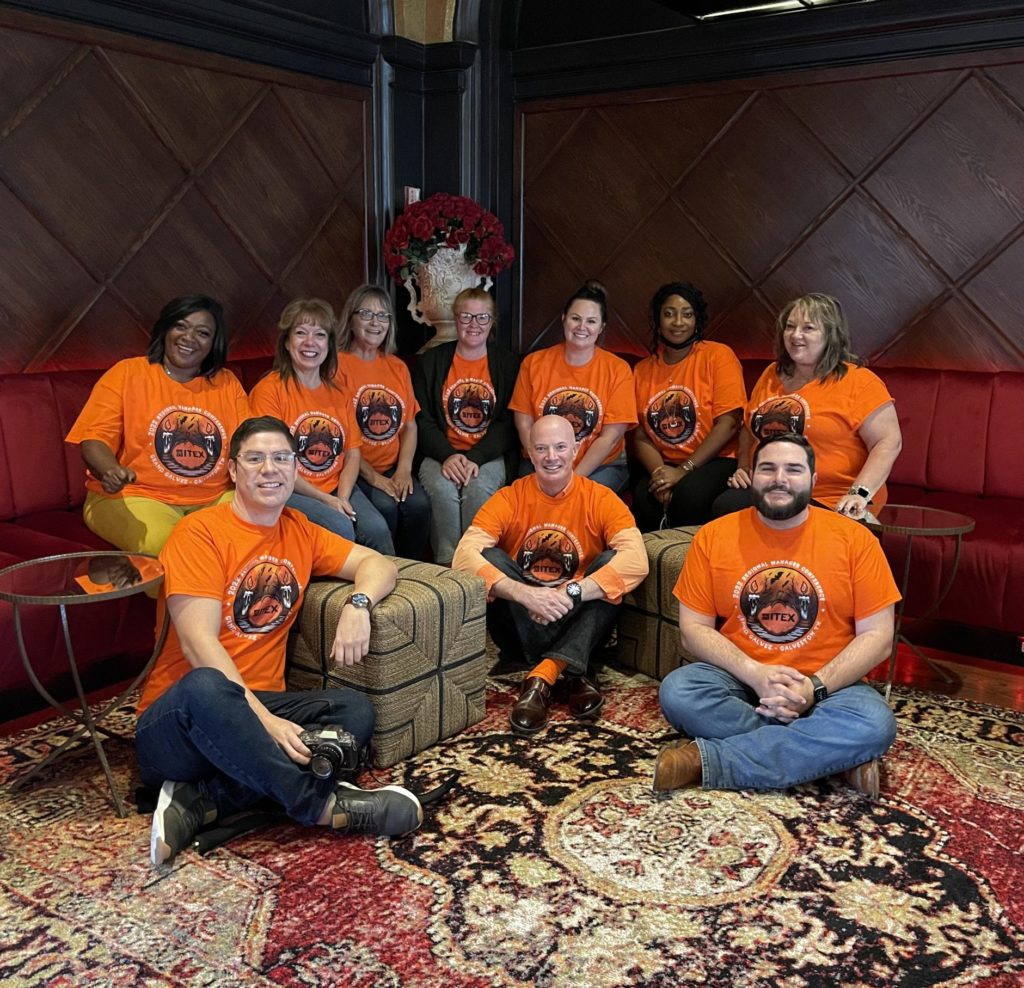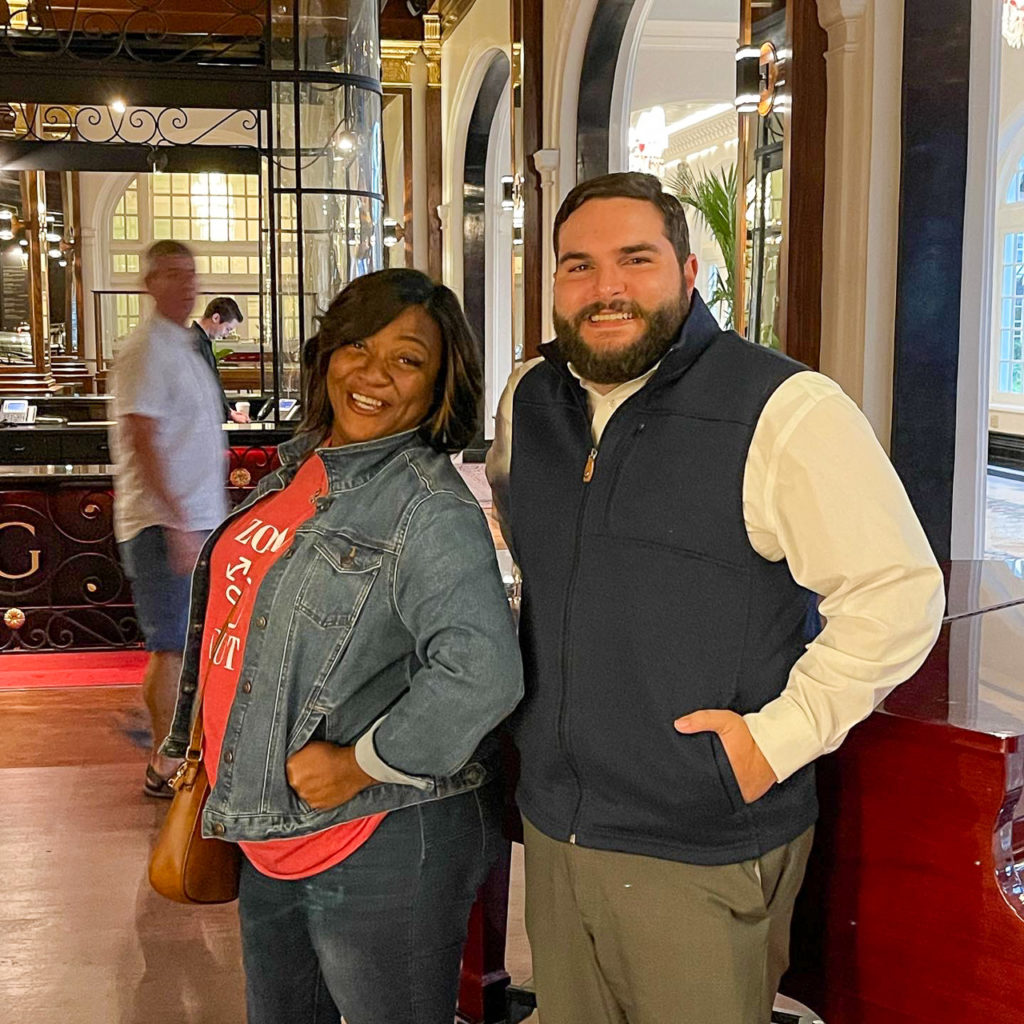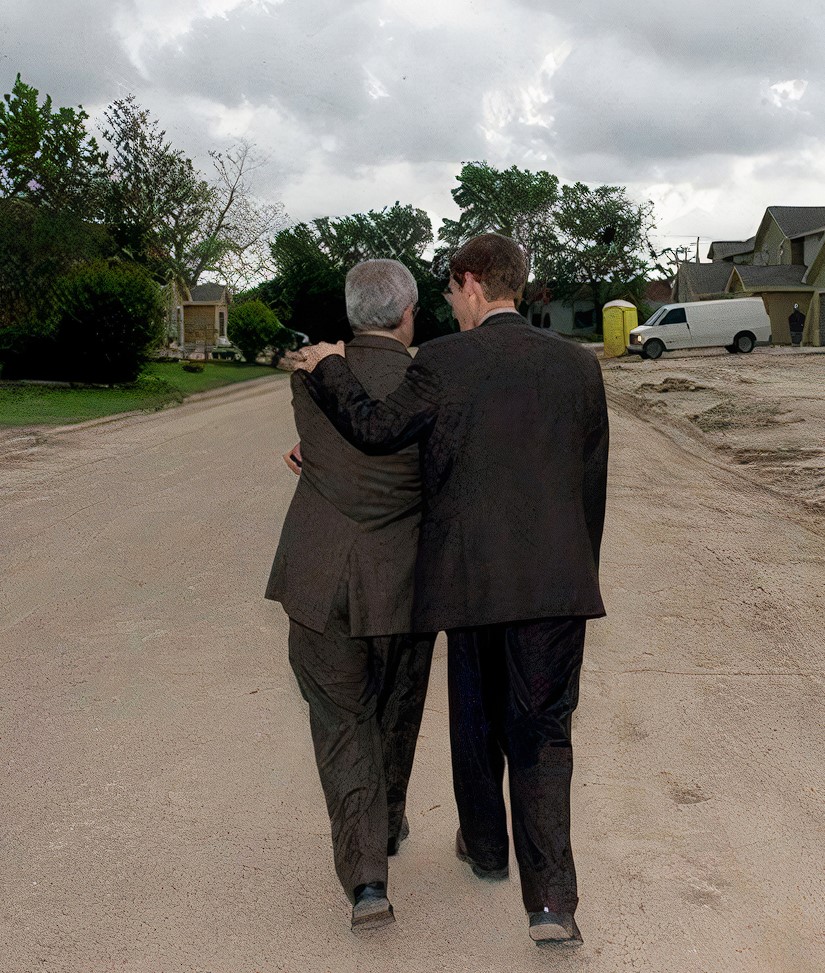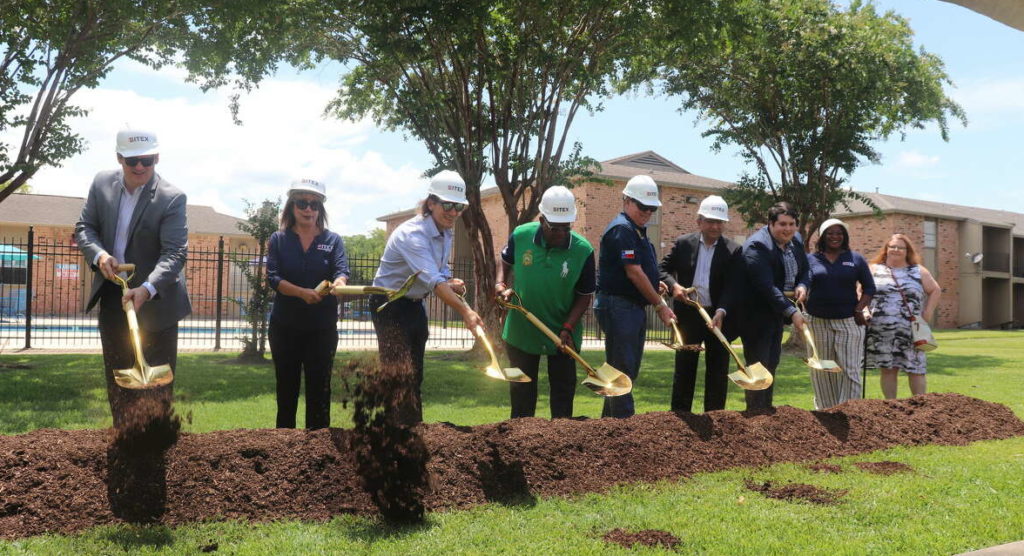

History
An American Success
Ike Akbari built a small, family-owned real estate company from the ground up. His son, Chris, is growing ITEX with humility and intelligence.



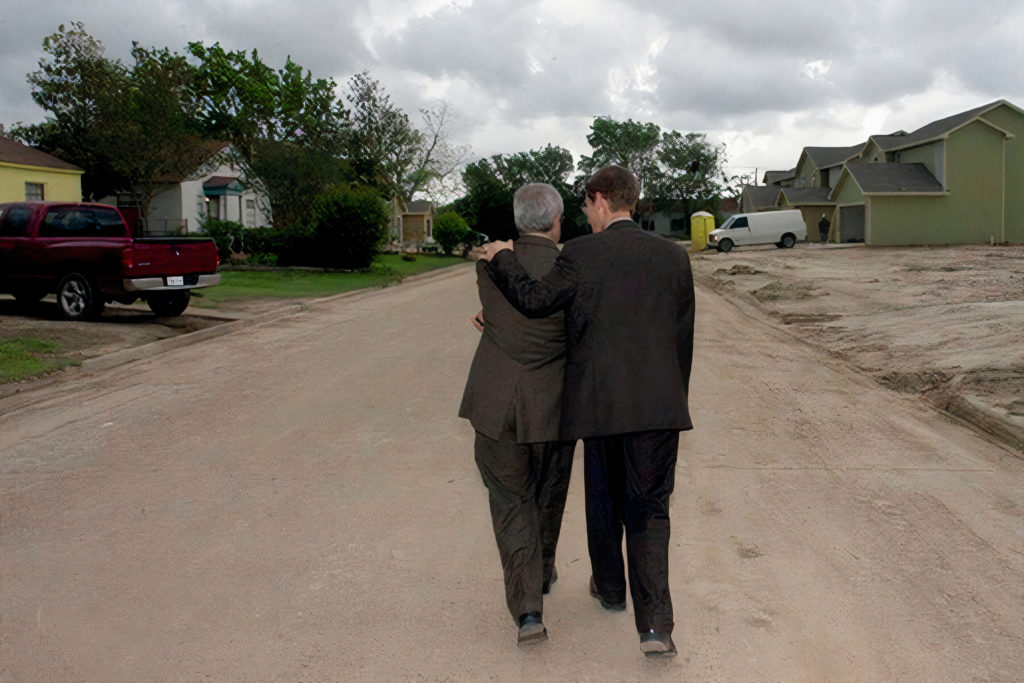
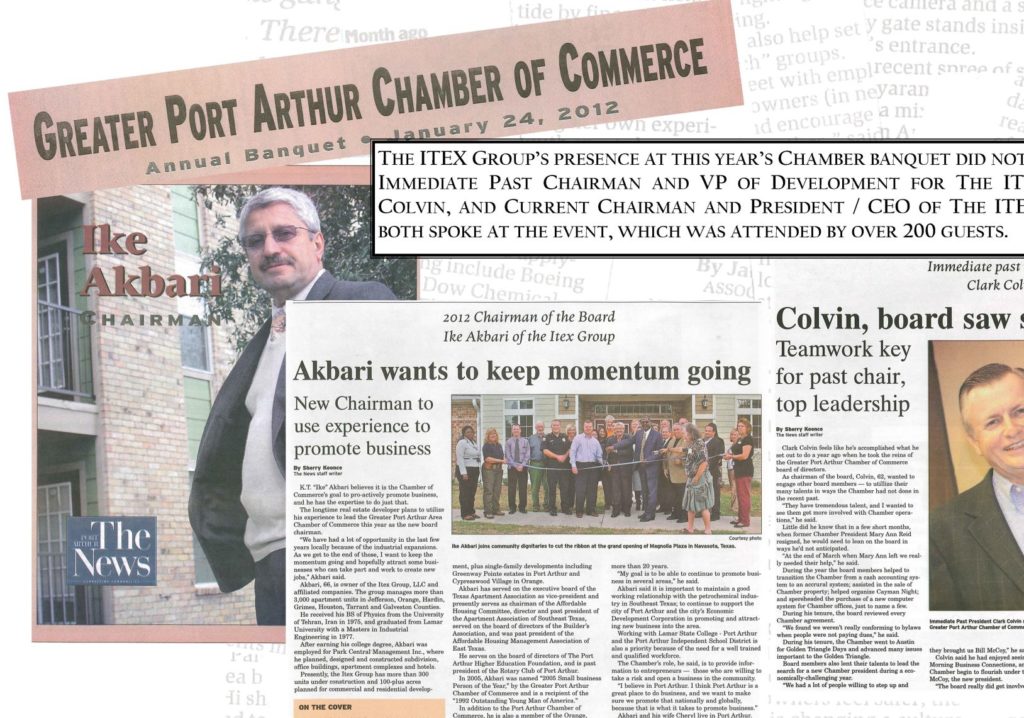
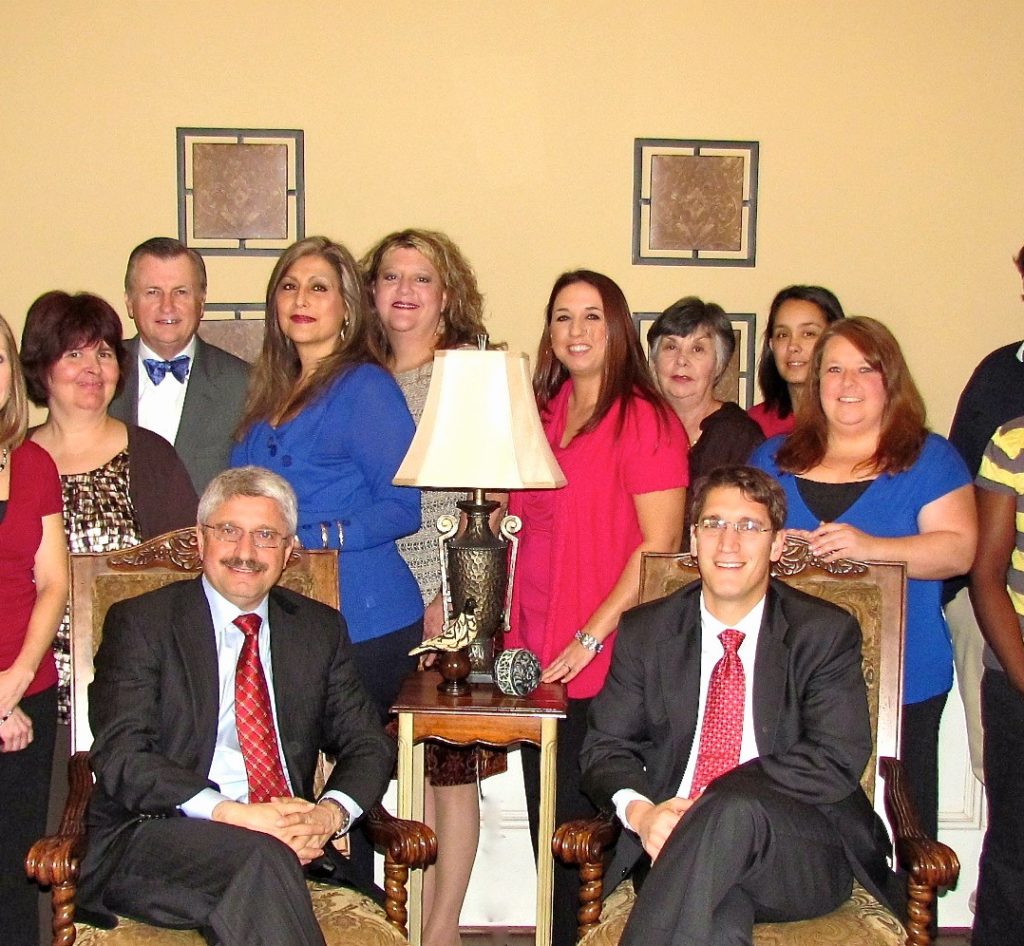


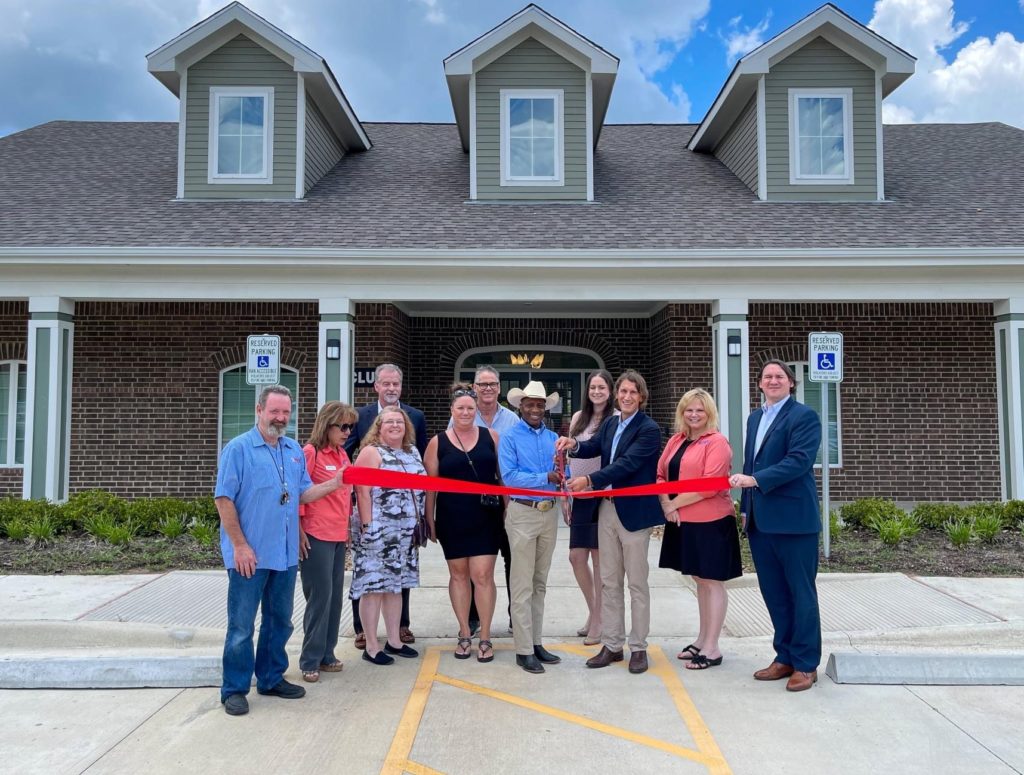
The question for Chris Akbari and the entire leadership team of ITEX is how to accelerate growth while maintaining the qualities that helped the company flourish.
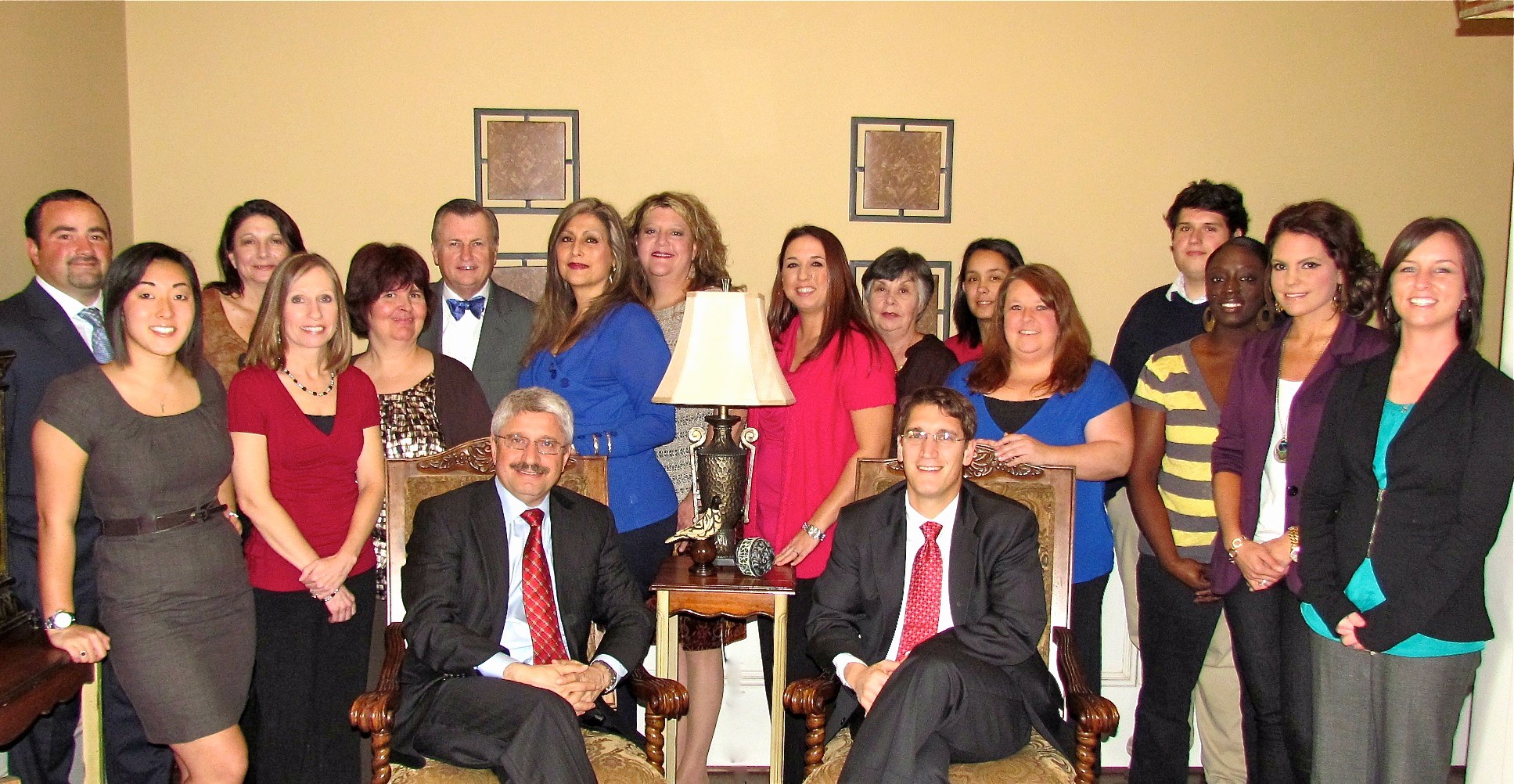

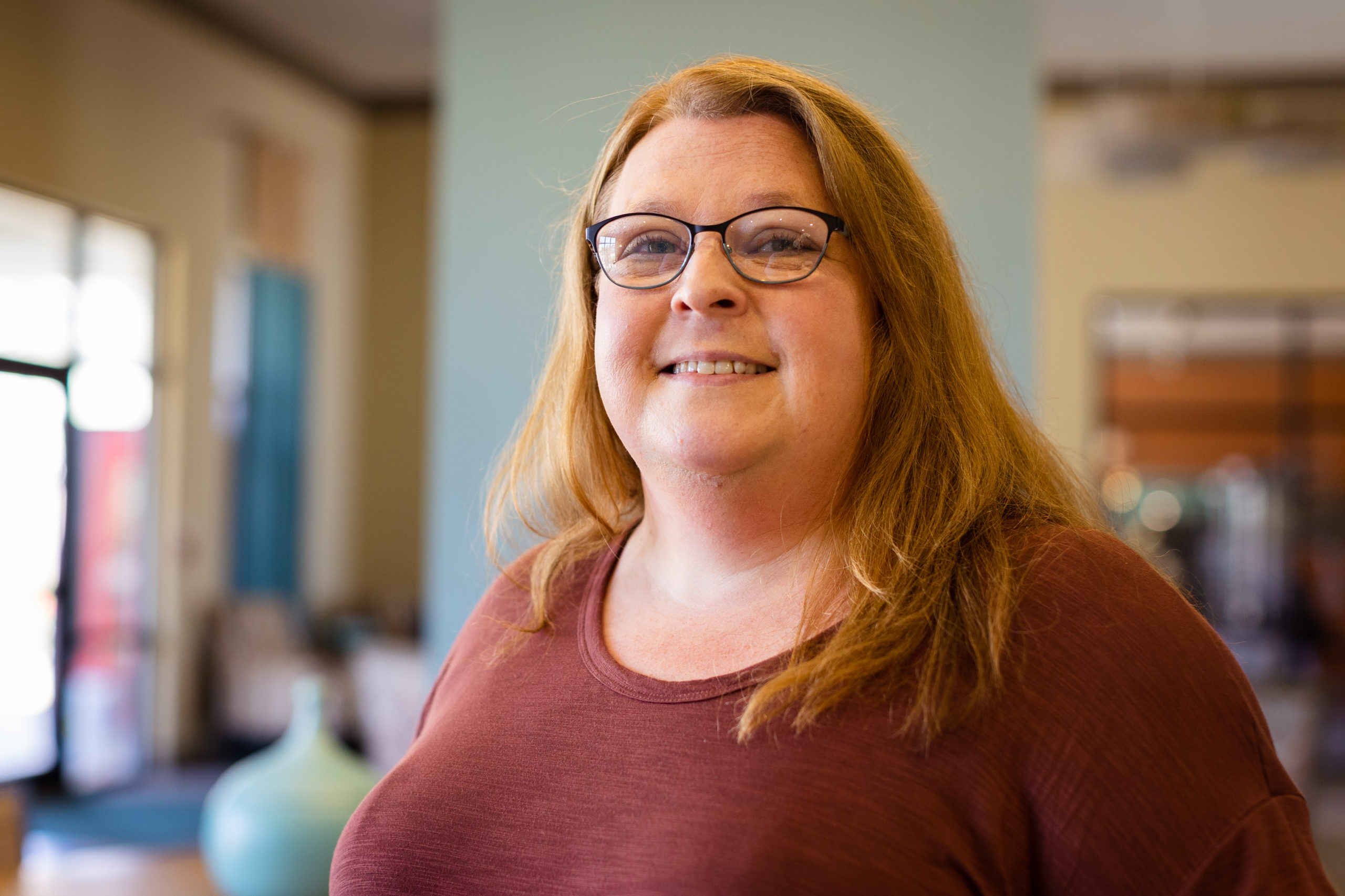
“He’d known me for like a month and treated me like family. I could never appreciate anybody more if he were my own dad.”
Tracy Ambridge, Director of Development

OUR
Beginnings
The perils of treacherous weather were nothing new to Tracy Ambridge. A native of Ohio, Ambridge lived and worked in Alaska for four years, a stint that included a daily commute from her home in Wasilla to her job at a title company in Anchorage. “The drive could be a bit scary in the dead of winter,” recalls Ambridge, who is director of development at ITEX, a real estate development and management company.
But snow and ice-covered roads did not prepare Ambridge for the confusion and fear she felt as Hurricane Ike approached Houston in September of 2008. Ambridge had recently relocated to Houston, Texas with her three young kids after her husband unexpectedly passed away. And while the entire city seemed to know instinctively how to evacuate, Ambridge struggled to figure out a plan to keep herself and her family safe.
Fortunately, Ambridge had just taken a job at ITEX, whose founder and president Ike Akbari prioritized the welfare of employees in an extraordinarily personal way. “Everybody was leaving and people forgot that I wasn’t from around here,” remembers Ambridge. “Ike let me know exactly where to go. He made sure I was OK and made sure everything was all set and that I was safe. He’d known me for like a month and treated me like family. I could never appreciate anybody more if he were my own dad.”


Ambridge’s experience was hardly unusual. Indeed, stories about Ike’s kindness and generosity towards both employees and the residents of ITEX properties abound. “My father led with his heart,” says Chris Akbari, the president and CEO of ITEX, who worked closely with his father for years and took over leadership of the company after Ike passed away in 2015.
In many ways, the hyper-personal, hands-on approach to management and leadership that Ike embraced is the main reason why ITEX was able to grow from the management of six affordable housing properties into a company today that boasts a quickly growing portfolio of over 60 affordable, market-rate, and commercial properties in Texas, Louisiana, and Colorado.
But the question for Chris Akbari and the entire leadership team of ITEX is how to accelerate growth while maintaining the qualities that helped the company flourish in the first place – qualities like treating employees like family and providing them meaningful career opportunities and building homes that fuel the success of families and communities.
“I’ve really tried to change and progress myself and make it my own company and do it based on the principles my father had,” Chris says. “For many years, I was just trying not to mess it all up. Since I’ve taken over we’ve been on this tremendous scaling trajectory and a lot of our work now is to create systems and put people in the right seats so that we can be able to continue to grow.”


“I’ve really tried to change and progress myself and make it my own company and do it based on the principles my father had.”
Chris Akbari, CEO & President
“Suddenly, after working so hard, he was able to acquire six multi-family assets.”
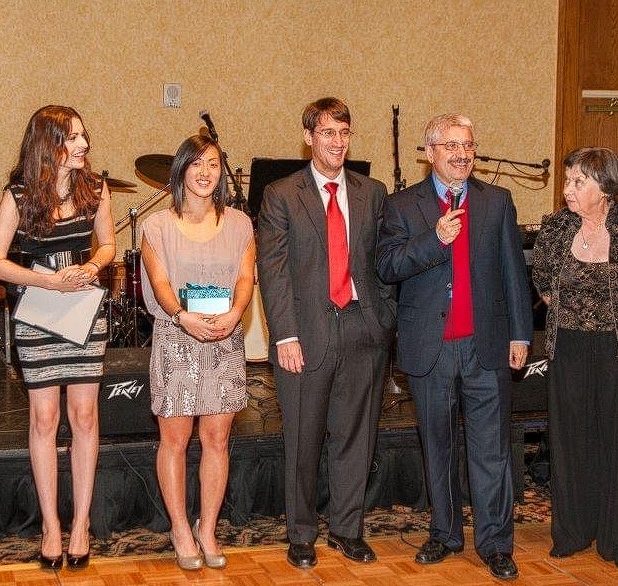
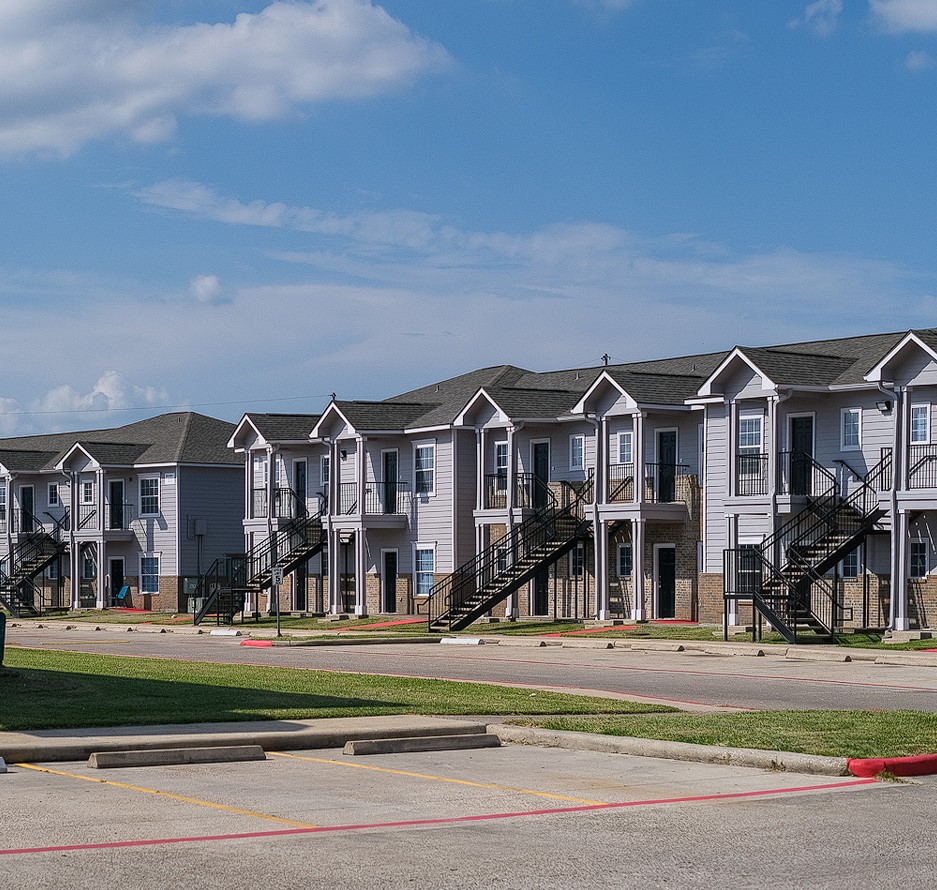
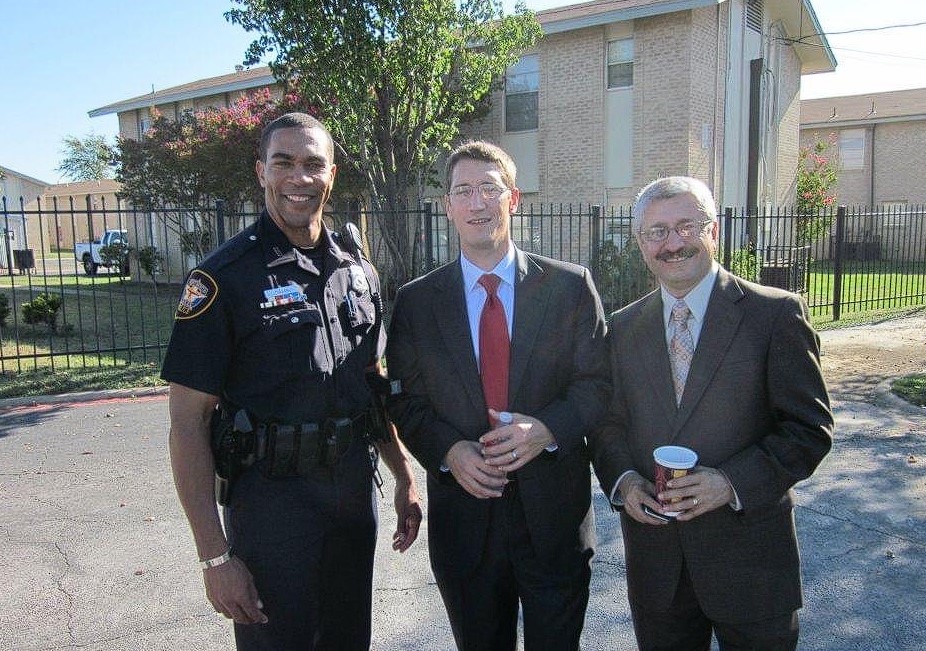
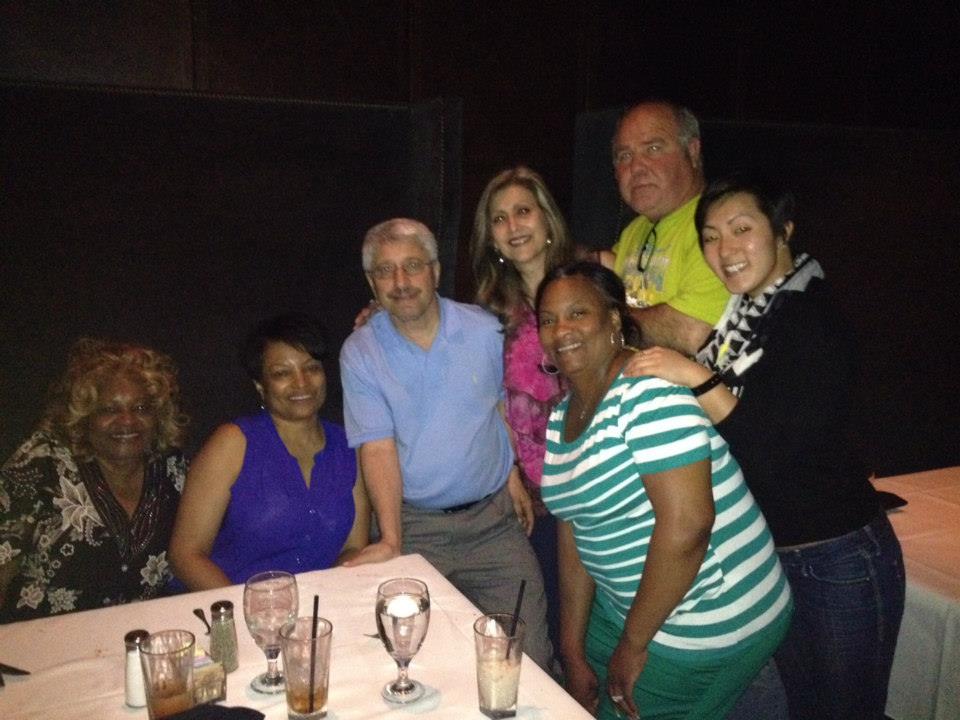
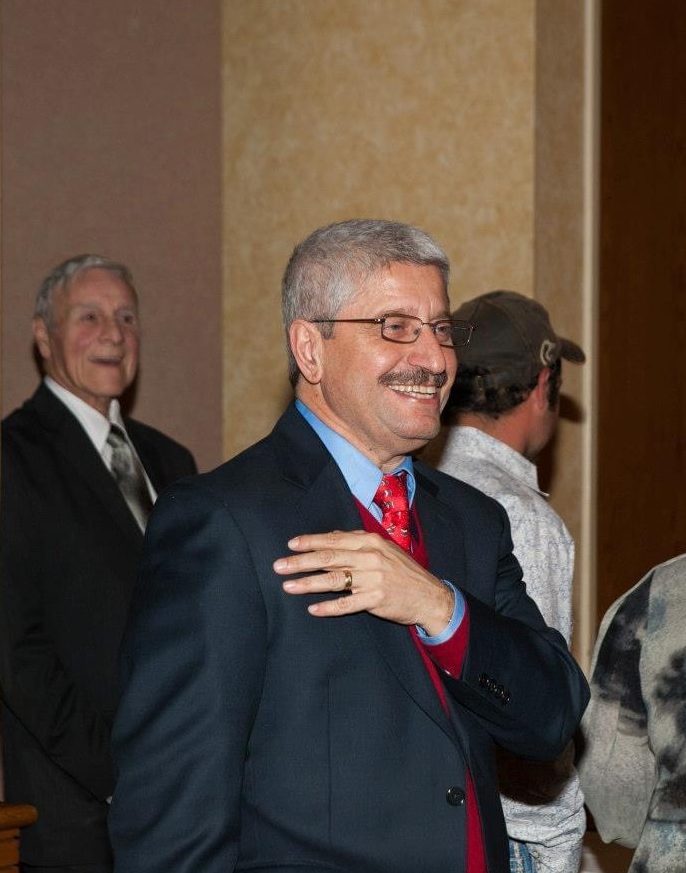
STORY OF AN
Immigrant
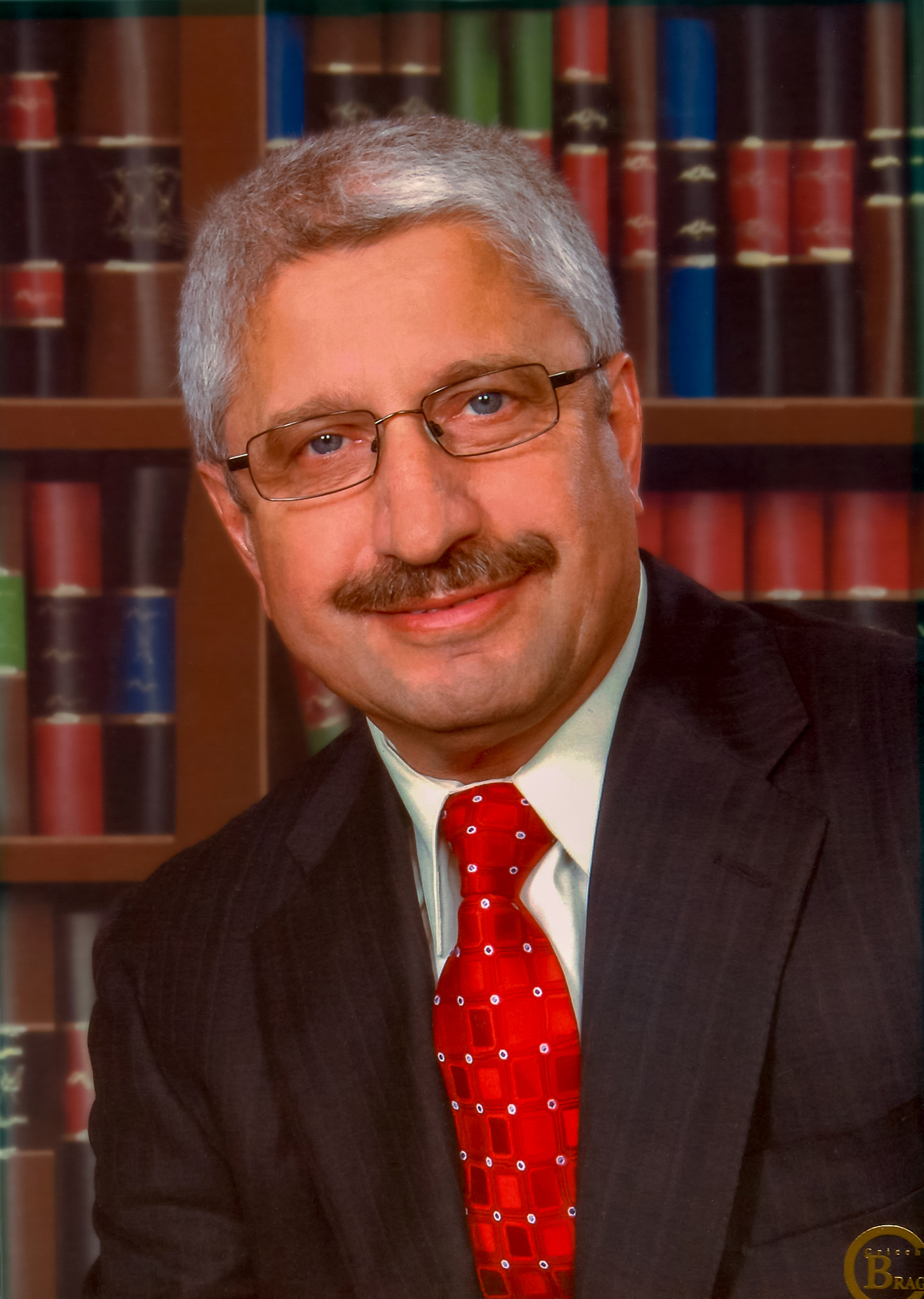
Within just a few years, Ike went from being a laborer to an engineer to running the firm’s construction division.


The very fact that Chris Akbari finds himself in a position where he needs to make difficult decisions about navigating ITEX’s growth is a testament to Ike’s legacy. Indeed, the very existence of ITEX as a company is the unlikely product of his father’s serpentine, often difficult immigrant’s journey.
In 1975 Ike Akbari left Iran and a job in reinsurance to move to Texas. Long an admirer of western culture and values, Ike and a friend initially arrived in Denton to study engineering at the University of North Texas. A paperwork snafu kept Ike from enrolling, but he soon discovered that the engineering school at Lamar University had a place for him. While earning a master’s degree in industrial engineering in Beaumont, Ike met his soon-to-be wife on a blind date. About a year later, Chris was born.
“He always said the first job he got was the day I was born,” Chris says. The job was with Hayes Construction and Park Central Management, a family-owned development company in the Beaumont-Port Arthur area. Ike’s first job was as a laborer. But his responsibilities quickly expanded, mostly because Ike never said no to an assignment. For example, not long after he began his job, a colleague who knew Ike had an engineering degree asked if he knew how to draw up plans for a subdivision. Ike had no clue how to do it.
But he did it anyway. Chris asked him about it years later. “I said, ‘dad, how did you know how to lay out a subdivision?’” Chris recalls. “He said, ‘well, I just got a rope and laid it out on the page. And then I sketched around the rope so it wouldn’t look like a block system.’”
The willingness to take on new and unfamiliar tasks helped Ike advance. Within just a few years, Ike went from being a laborer to an engineer to running the firm’s construction division. All the while, Ike spent his weekends and evenings building houses with a construction company he started called Icon. “On the weekends we used to come to Houston just to go and tour homes and get plans. He would take his favorite plans and draft them up and build a house,” Chris remembers. “It was very entrepreneurial.”


After about a decade of working with Hayes Construction, tragedy forced Ike to decide whether or not he wanted to be a full-time entrepreneur. After the company’s founder died in a plane crash, the Hayes family decided to shut down the development and construction arms of the company. For a while, the company continued to manage six properties it had already constructed. But eventually, the family decided they would sell those assets as well.
Seeing an opportunity, Ike tried to buy the properties. But he couldn’t line up the necessary investors. Undeterred, Ike took the advice of a potential investor who had turned him down and applied for financing through a government program that would allow him to purchase four of the properties without putting up any of his own money. The strategy worked. “Then he used the money he got from those plus money that he had built up in his savings to go and buy the other two properties,” Chris says. “Suddenly, after working so hard, he was able to acquire six multi-family assets.”
ITEX was born in 1981.
THE BIRTH OF
THE BIRTH OF
ITEX
ITEX
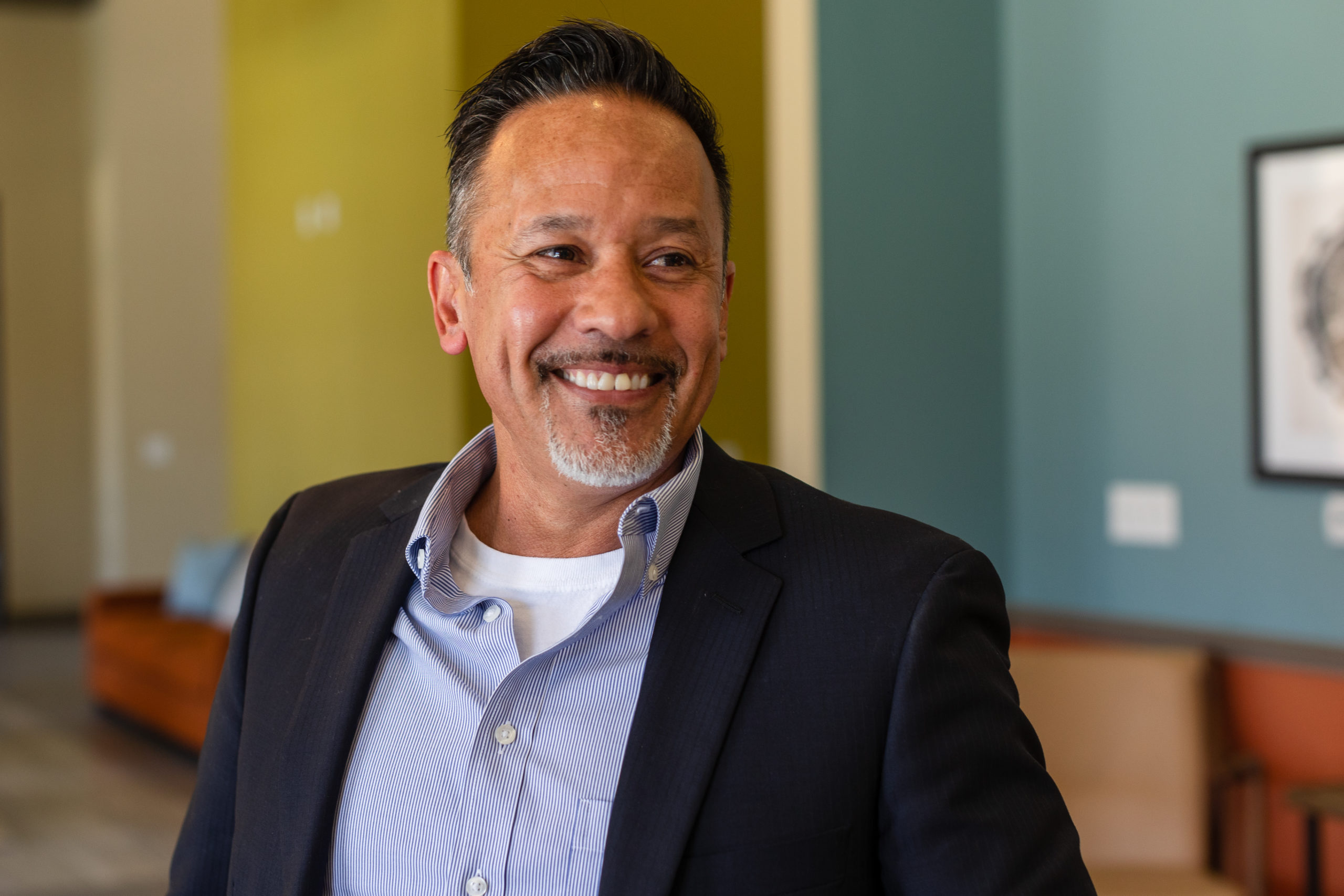

The early years of ITEX were defined by a focus on affordable housing. Although ITEX has recently emphasized diversifying its portfolio of properties, the philosophy Ike brought to developing affordable housing remains. “The one message that’s going to remain is Ike’s vision of providing quality housing for folks, whether they be low-income or market rate,” says Gilbert Contreras, who is head of human resources at ITEX. “The purpose is to really provide affordable housing, great housing, for people to reside in and break that cycle of poverty.”
ITEX’s early success very much depended on Ike’s unique personality. Paula Watts, who was vice president of operations at ITEX, first encountered Ike when she worked at the Port Arthur Housing Authority. More than anything, she recalls Ike’s energy and capacity to get things done.
“There was never anything that would get him down. There was no negativity. At every meeting he said, ‘tell me what you want, I’ll make it happen,’” recalls Watts. “And he did. And he meant it. I’ve seen him go up against city council, I’ve seen him go up against community neighborhood meetings and he always remained positive and he always came out with a good outcome. He made things happen.”

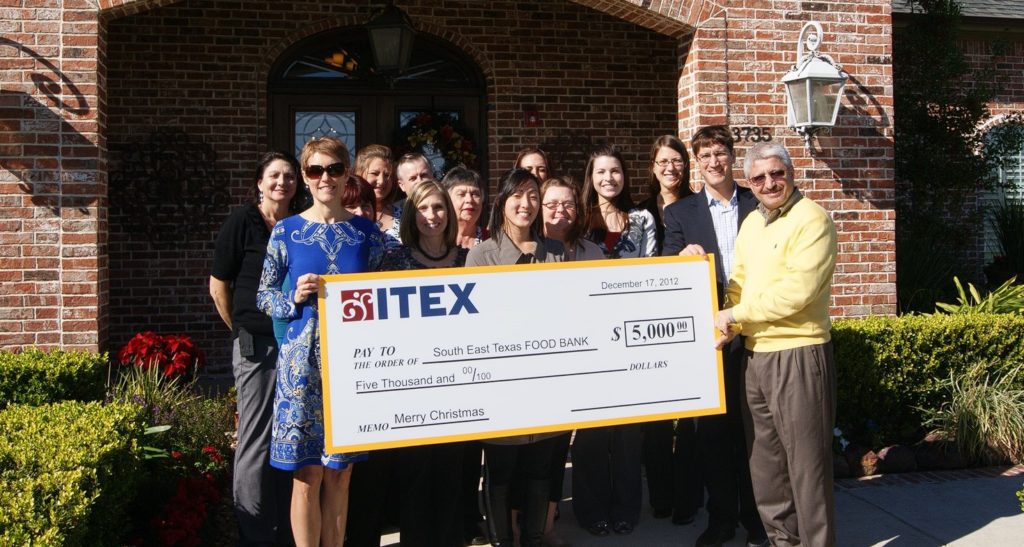
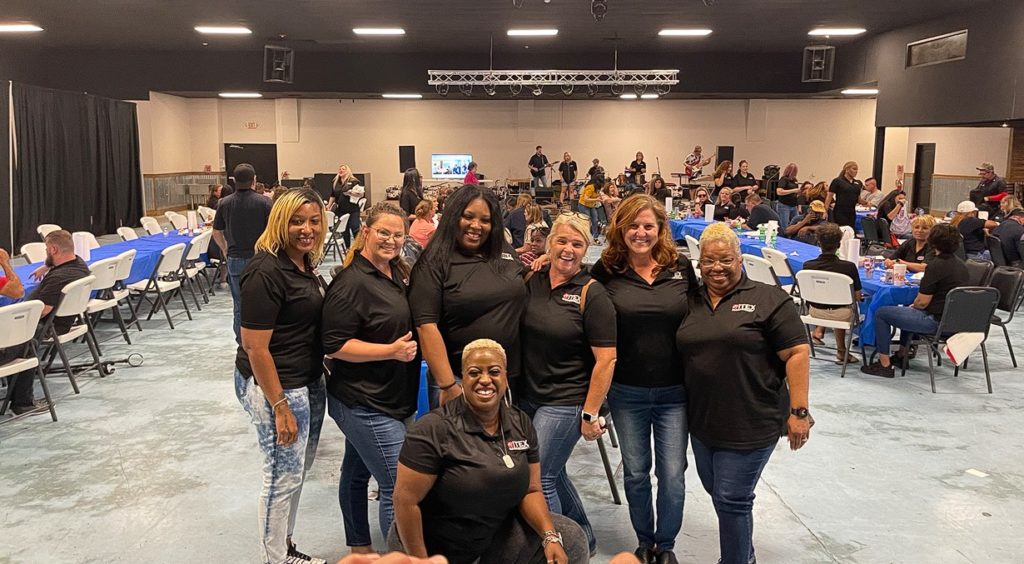
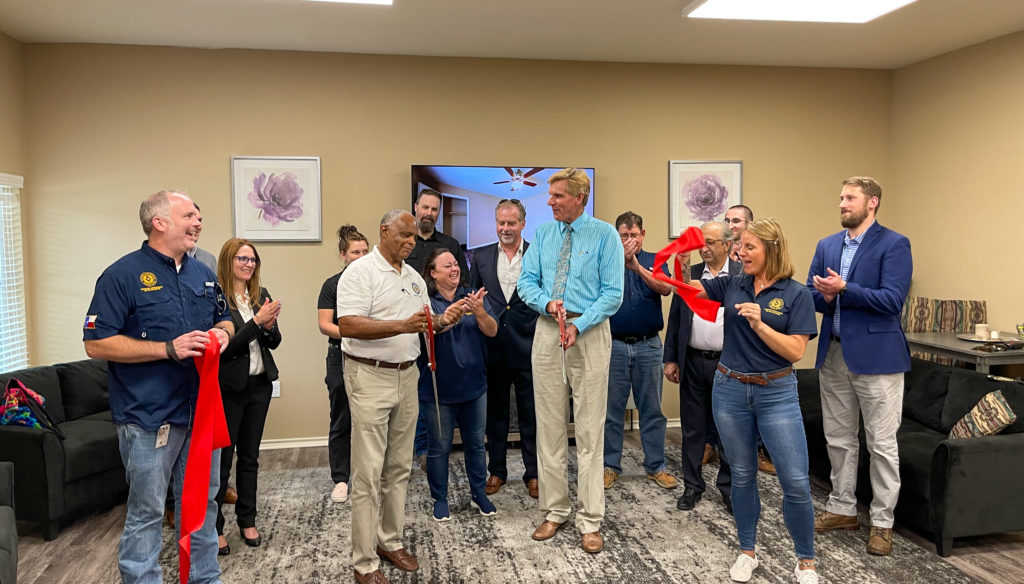
A NEW
Partnership
In 2005 Hurricane Rita swept through Houston. At the time, ITEX was in the midst of a development and acquisition boom. Overnight, the company’s properties were decimated. “All these assets that he had finally acquired – some were under construction and some were just finished with their construction – the hurricane knocked all of them out,” Chris says. “He basically went from having all these wonderful complexes to having just ruins. I remember during that time, it was really trying for him.”
Before Rita hit, Chris had pursued his own career developing software for the oil and gas industry. But after seeing his father struggle and begin to experience health issues, Chris decided to wind down his software business and join ITEX.
The decision energized Ike, who wanted Chris to quickly learn everything he could about the business. To do that, Ike set Chris up at a small desk in his office. “I told him, ‘you don’t have to put me at this little baby desk,’” Chris remembers. “He said, ‘no, this is how it’s best for you to learn the business. I want you to hear all the conversations that I have and that way you’ll learn how this business really is. I need you to get up to speed extremely quickly.’”
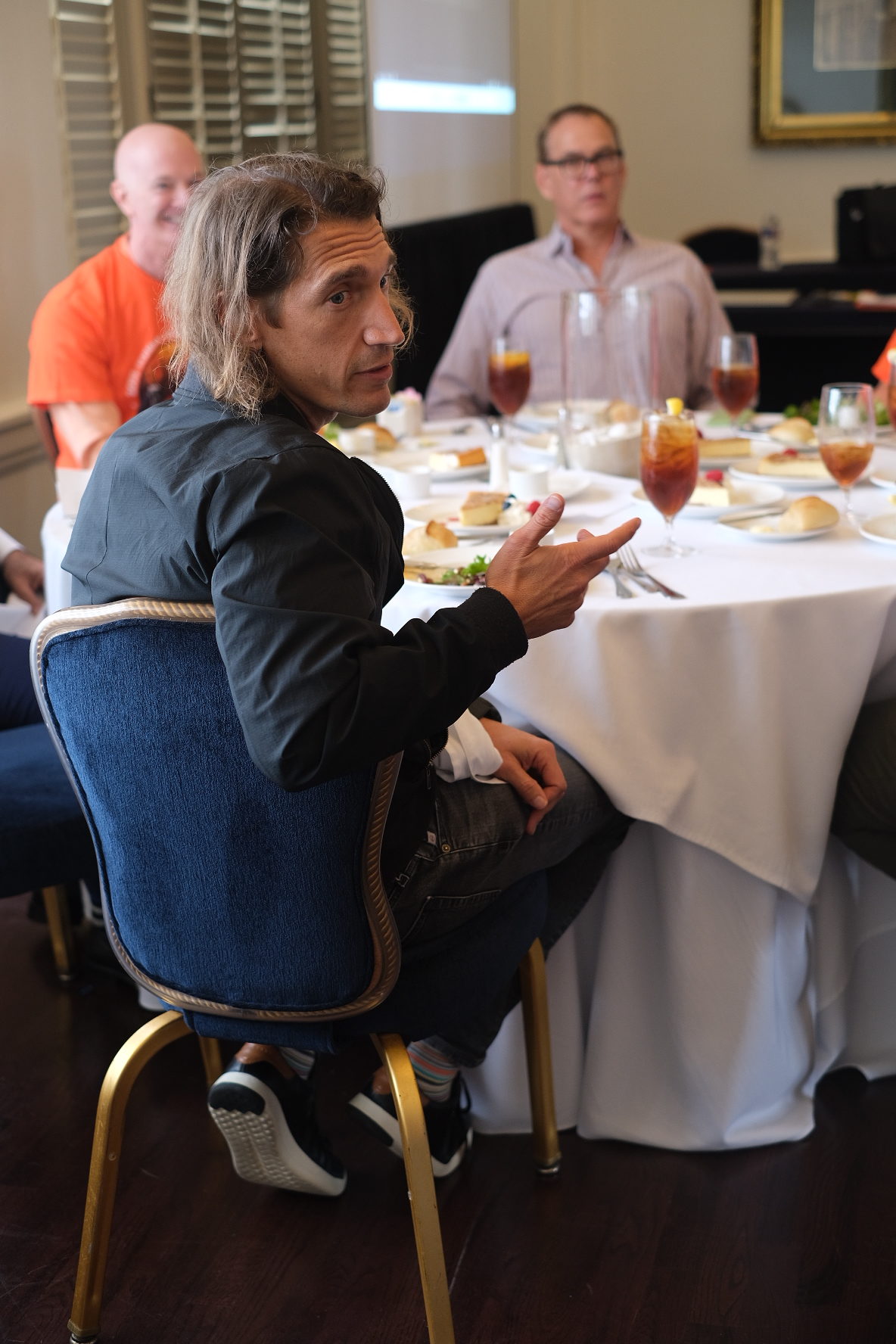
Chris and Ike were instantly inseparable. Tracy Ambridge worked with both Akbaris at the time and was struck by the strength of the father-son relationship. “They were at the hip every day. If one was going to a meeting, the other was going out with him,” Ambridge recalls. “You would always see them walking side by side and it was nice because Ike doted over Chris. He made sure he had lunch, he made sure that he stayed on top of his haircuts, all the little things.”
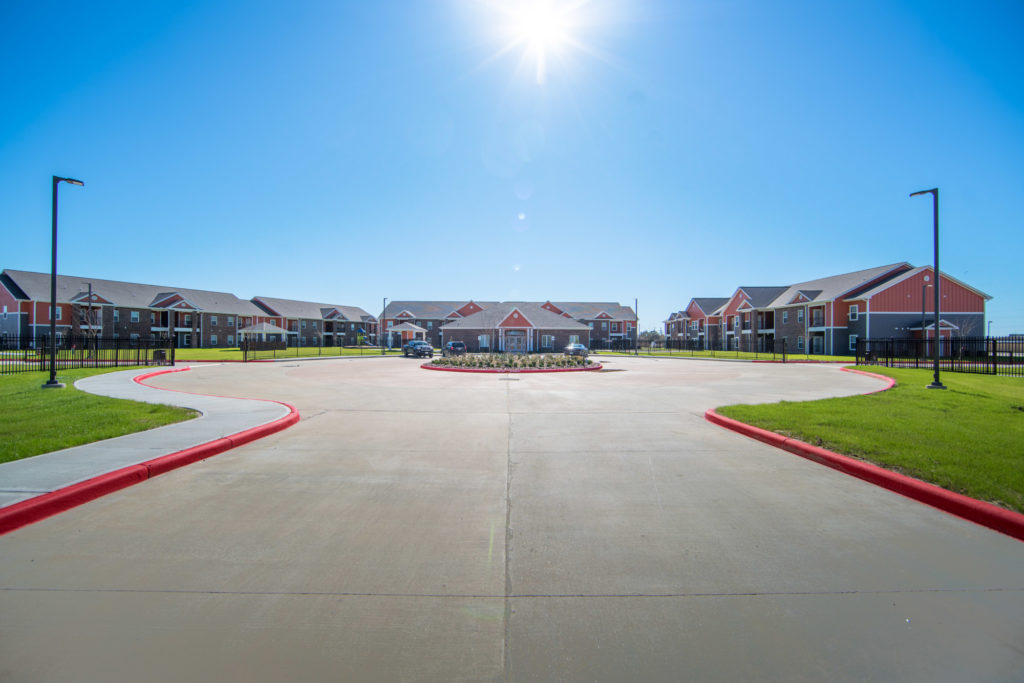
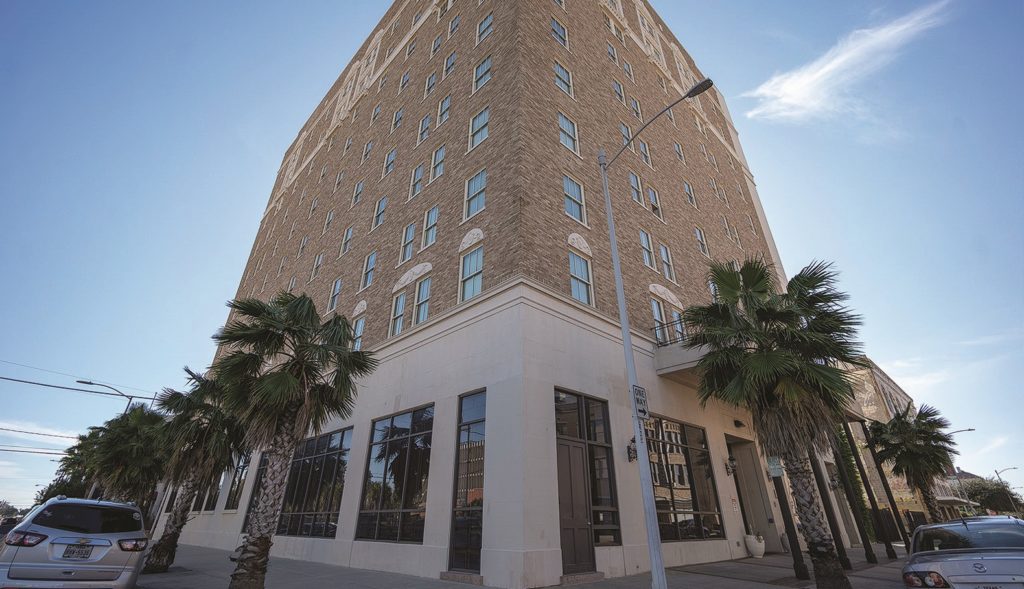

Although Hurricane Rita had dealt a real blow to ITEX’s business, the storm’s aftermath also brought opportunity. “The same hurricane that destroyed a lot of what he [Ike] had and created these health issues led to a lot of money coming to the area,” Chris says. “It brought a lot of opportunity to rebuild. I think having me there gave him a lot of incentive and it felt at the time like he was reinvigorated.”
Even though Ike was clearly grooming Chris to eventually take over ITEX, his son’s early role in the company was largely undefined. At first, Ike told people that his son would help with technology implementation, which made sense given Chris’s career path. Later, he was tasked with managing the construction company. “It wasn’t well-defined. It was more like, here’s the need, and we need you to fill this role,” Chris remembers. “Figure it out as you go. It wasn’t a roadmap.”
Having an array of responsibilities and exposure to all that ITEX does was good training. And having an outsider’s perspective also allowed Chris to quickly pinpoint improvements. “The first thing I thought was all these systems and processes they were using were pretty antiquated and they need to be upgraded,” Chris says. “It was a mom and pop startup. It wasn’t prepared to scale.”
A terrible loss and
A new chapter
Chris always figured that he would eventually lead ITEX. He just didn’t think it would happen so soon. In 2015 Ike passed away and Chris became president of ITEX.
“It was a struggle. We went through a few years there where we didn’t know which way was up,” Contreras says. “You have your beloved leader of the company pass and his son ascends to be president of the company and has to give us direction, has to lay out a vision, and has to embrace a new culture. Yet at the same time he’s having to deal with grieving the passing of his father.”
Ambridge worked closely with Chris at the time and marveled at his capacity to exude calm and continuity. “I had already been through my own loss and trying to keep going afterwards. He really did it with grace. I’m sure there were many times when just coming into the office was really hard for him,” Ambridge says. “The fact that Chris was able to pull things together after losing Ike was astonishing to me.”
A terrible loss and
A new chapter
Chris always figured that he would eventually lead ITEX. He just didn’t think it would happen so soon. In 2015 Ike passed away and Chris became president of ITEX.
“It was a struggle. We went through a few years there where we didn’t know which way was up,” Contreras says. “You have your beloved leader of the company pass and his son ascends to be president of the company and has to give us direction, has to lay out a vision, and has to embrace a new culture. Yet at the same time he’s having to deal with grieving the passing of his father.”
Ambridge worked closely with Chris at the time and marveled at his capacity to exude calm and continuity. “I had already been through my own loss and trying to keep going afterwards. He really did it with grace. I’m sure there were many times when just coming into the office was really hard for him,” Ambridge says. “The fact that Chris was able to pull things together after losing Ike was astonishing to me.”

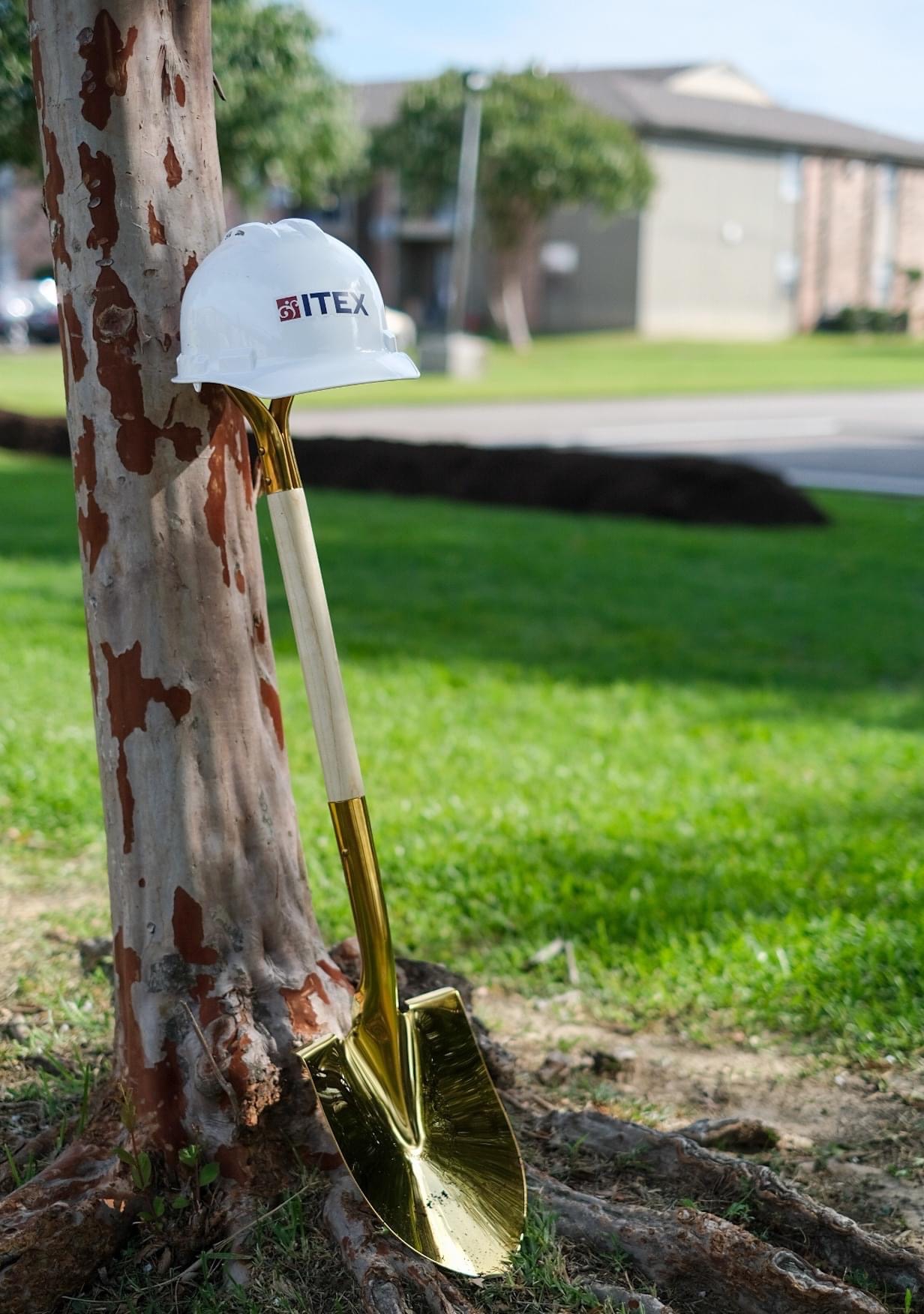
For a time, Chris says he was focused on simply not squandering all that his dad had built. But he eventually began pursuing the changes he knew would be necessary to spur continued growth. In large part, that work has involved creating the systems and processes Chris saw inhibiting ITEX when he first arrived.
By any measure, Chris has succeeded. Though already a success when Chris became CEO, ITEX has grown at a breakneck rate under his leadership. ITEX has developed over 8,000 units in its 60-plus communities, a total of $800 million in completed developments. Today, ITEX manages over 7,400 affordable and market-rate units with plans for significant expansion in the future.

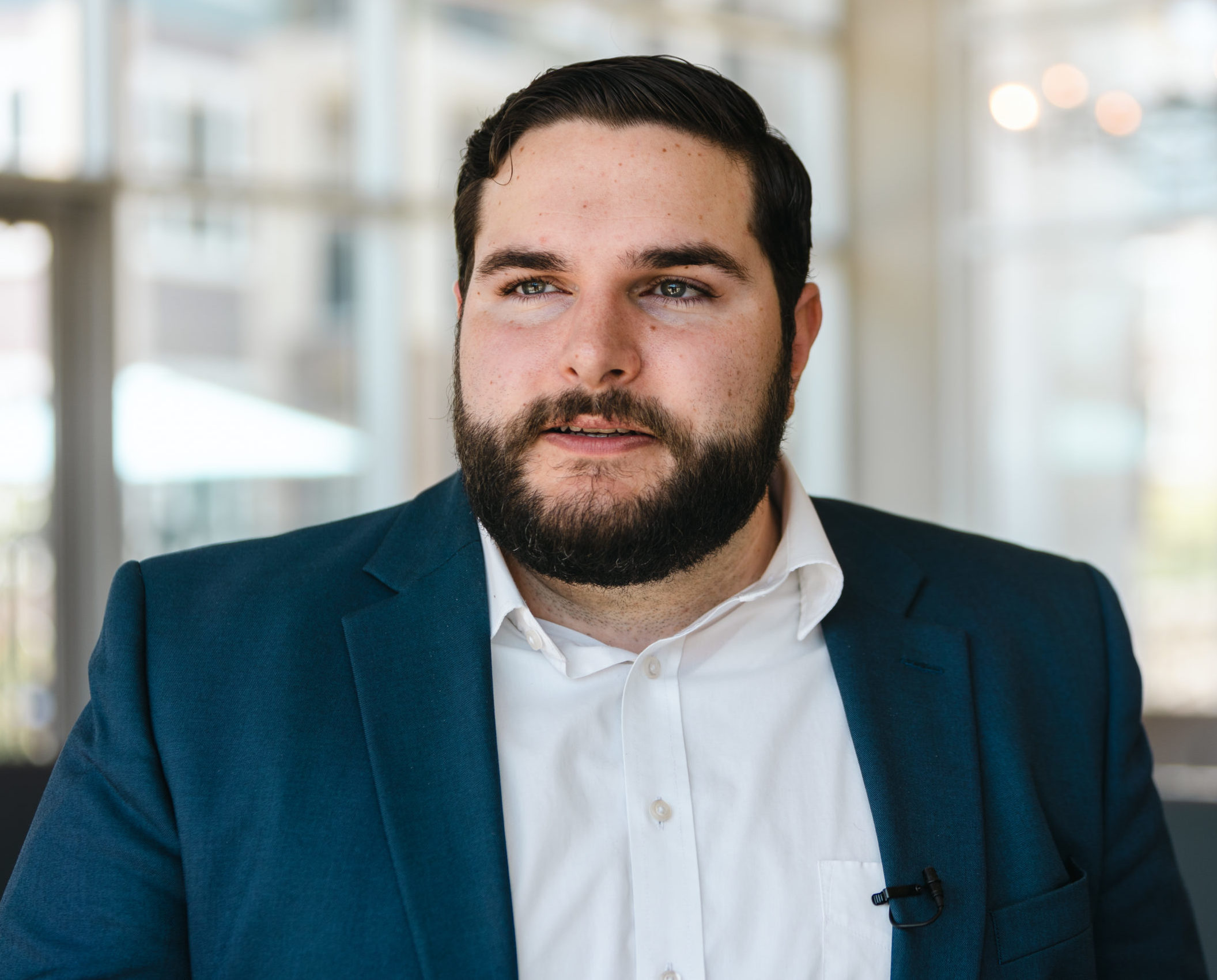
The
ITEX way
A big component of building the systems ITEX needs to grow is around how the company recruits, retains, and continuously trains employees. It’s also about clearly communicating what a successful career trajectory at ITEX looks like. “You have to find the right people and put them in the right seats on the bus,” Chris says. “You have to have the right training systems. You have to really work with [employees] to make sure that they have a path to growth and really can see their career and map that out for themselves.”
As part of that effort, ITEX hired Justin Haynes in 2022 to put in place the training systems and programs needed to find the right people and help them progress in their careers. To guide that work, ITEX evaluates people on three simple criteria: humble, hungry, and smart.
“Are they humble? Do they have the hunger to continuously drive to create excellence? And are they emotionally intelligent, that’s what we mean by smart,” says Haynes, who joined ITEX after working in human resources and training and development at Trinity Industries and Sam Houston State University. “Ultimately, everybody we deal with is a customer, whether it’s our own employees, our boss, our tenants, our stakeholders. They’re all customers. Are we exhibiting the qualities of good customer experience and good customer service? Those qualities funnel into the success of what we’re trying to build here.”

The
ITEX way
A big component of building the systems ITEX needs to grow is around how the company recruits, retains, and continuously trains employees. It’s also about clearly communicating what a successful career trajectory at ITEX looks like. “You have to find the right people and put them in the right seats on the bus,” Chris says. “You have to have the right training systems. You have to really work with [employees] to make sure that they have a path to growth and really can see their career and map that out for themselves.”
As part of that effort, ITEX hired Justin Haynes in 2022 to put in place the training systems and programs needed to find the right people and help them progress in their careers. To guide that work, ITEX evaluates people on three simple criteria: humble, hungry, and smart.
“Are they humble? Do they have the hunger to continuously drive to create excellence? And are they emotionally intelligent, that’s what we mean by smart,” says Haynes, who joined ITEX after working in human resources and training and development at Trinity Industries and Sam Houston State University. “Ultimately, everybody we deal with is a customer, whether it’s our own employees, our boss, our tenants, our stakeholders. They’re all customers. Are we exhibiting the qualities of good customer experience and good customer service? Those qualities funnel into the success of what we’re trying to build here.”


Diversification in the types of projects ITEX develops is also an important aspect of sustainable growth. Though ITEX built some market-rate housing during Ike’s tenure, Chris wants to do much more. In part, that’s because diversification lowers ITEX’s risk during times when either affordable or market-rate housing is struggling. “We also think there’s a huge opportunity in the gap between affordable and high-end market rate housing where there are a lot of people in middle income jobs,” Chris says.
Chris also sees opportunities in commercial development. For example, ITEX is currently pursuing a project that will feature about 200 residential units, entertainment venues, and space for retail and restaurants. “We have not really participated in something like that, even though we do know how to build it and have the capability,” Chris says. “But we think it’s a way to achieve diversification and it’s also a great opportunity.”
The types of projects ITEX will pursue in the future will continue to expand and diversify. And to be successful, ITEX needs to find and cultivate the right people and put in the types of systems that allow the company to grow. All of this requires significant change. But as Chris looks towards the future, it’s also clear that Ike’s vision of serving residents, employees, and communities will remain core to all ITEX does.
“We have big goals to grow the number of units we have under management as well as to diversify our product offering. In five years I hope we have a more diversified product offering that supports multiple income ranges and that we continue to provide a very supportive environment for our employees to grow and have success. We want to touch a lot of people’s lives.”
